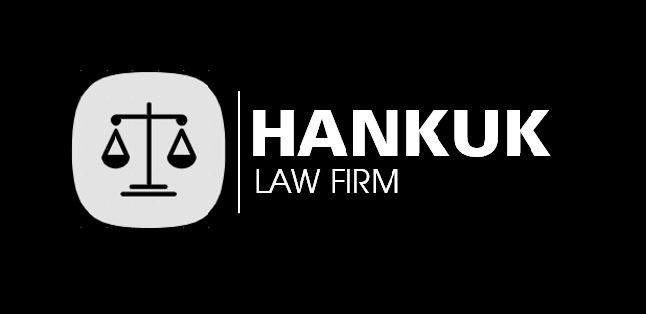REGULATIONS ON ADJUSTING INFORMATION AND DATA IN ACCOUNTING BOOKS

In the context of the modern economy, managing and adjusting information and data in accounting books plays an extremely important role for enterprises. This is not only related to legal compliance but also affects the transparency and reputation of the enterprise in the eyes of investors and state management agencies. This article will present the regulations on adjusting information and data in accounting books according to Vietnamese law.
Contents
- I. Overview of Accounting Books and Their Role
- II. Legal Regulations on Adjusting Information and Data in Accounting Books
- III. Cases of adjusting information and figures in accounting books from after December 31 to before the date of issuance of approved financial statements.
- IV. Cases of adjusting information and figures in accounting books after the financial report has been submitted to the competent authority or has been made public.
- V. Principles for Adjusting Information and Data in Accounting Books
- VI. Forms of Adjusting Information and Data in Accounting Books
- VII. Methods of Adjustment and Correction
- VIII. Accountant’s responsibility in adjusting information and data in accounting books
- IX. Consequences of not adjusting information and figures in accounting books
- X. About Us, Hankuk Law Firm
I. Overview of Accounting Books and Their Role

Accounting books are an essential tool for recording and tracking the financial activities of an enterprise. According to the provisions of the Vietnamese Accounting Law, accounting books are not only where economic transactions are recorded but also documents reflecting the financial situation and business results of the enterprise. Therefore, the information and data in accounting books must be accurate and adjusted promptly when there are errors or changes.
II. Legal Regulations on Adjusting Information and Data in Accounting Books

According to Article 14 of the Accounting Law of 2015, enterprises must record and adjust information and data in accounting books according to legal regulations. Adjusting information and data in accounting books ensures accuracy and protects the legitimate rights of stakeholders. When errors are discovered, enterprises must immediately make adjustments and clearly note them in the accounting books.
III. Cases of adjusting information and figures in accounting books from after December 31 to before the date of issuance of approved financial statements.

- Assets purchased before December 31 but with sufficient information to determine the purchase value and revenue from the sale only after this date.
- Revenue from joint ventures or partnerships during the reporting period that must be shared with another unit based on an agreement, but sufficient information and documents to determine the division are only available after December 31.
- Differences in revenues and expenditures from autonomous operations, lump-sum contracts, or similar activities are transferred to the unit’s funds and must correspond to the payable amounts.
- Errors recorded in accounting books during the reporting year that are discovered after the closing date (after December 31).
- Decisions received after December 31 related to ongoing cases that create current obligations, requiring the unit to recognize or adjust the provision in the reporting data.
- Information received after December 31 indicating that assets were impaired before this date, necessitating recognition or adjustment of the provision.
- Events occurring after December 31 provide evidence of prior events that need to be adjusted in the data presented in financial statements, ensuring compliance and objectivity; the unit is responsible for this adjustment.

- Discovery of significant errors: omissions of information or incorrect handling of existing information leading to distorted data in the financial statements.
- Execution of documents from competent authorities: requests/suggestions requiring the unit to adjust the information and data presented in the financial statements.
- Changes in accounting policies: accounting regimes, financial mechanisms, methods of recognizing the value of a transaction, events significantly affecting the information and data of previous years.
- Changes in estimated accounting data: estimates for establishing provisions, estimating costs when work is not completed, etc.
V. Principles for Adjusting Information and Data in Accounting Books

Adjusting information and data in accounting books must adhere to several basic principles. First, all adjustments must be made according to the procedures prescribed by law. Second, adjustments need to be completed within the stipulated time frame without affecting the accuracy of the financial statements. Finally, all adjustments must be documented and clearly explained to avoid misunderstandings in the future.
VI. Forms of Adjusting Information and Data in Accounting Books

There are various forms to adjust information and data in accounting books. One of the most common forms is adjusting through journal entries. Adjusting entries are made to rectify errors in the recording process, ensuring that the information in the accounting books accurately reflects the enterprise’s actual situation.
Additionally, enterprises may adjust information and data by supplementing documents and evidence related to the arising economic transactions. This supplementation clarifies the sources of data and ensures that all adjustments have a solid legal basis.
VII. Methods of Adjustment and Correction

- Retrospective Adjustment
- Discovery of significant errors
- Implementation based on requests/suggestions from competent state authorities
- Applying Retrospective Adjustment
- Adjusting data of asset items, liabilities, and net assets previously presented in the financial statements from the previous year due to the impact of changes in accounting policy by adjusting the beginning data in the current year’s financial statements.
- Adjusting data presented in the income statement from the previous year due to the impact of changes in accounting policy by adjusting the data of items in the previous year’s column of the current year’s income statement.
- Applying Non-Retrospective Adjustment
- Estimated information and data are changed when the bases for estimates in previous periods change or when new information is added.
VIII. Accountant’s responsibility in adjusting information and data in accounting books

Accountants are primarily responsible for adjusting information and data in accounting books. According to the provisions of the Accounting Law, accountants must ensure that all recorded information and data are accurate and complete. When errors are detected, accountants need to promptly execute adjusting entries and notify enterprise management for timely resolution.
Moreover, accountants must retain documents related to the adjustment of information and data in accounting books. This not only facilitates audits but also creates transparency for the enterprise’s financial activities.
IX. Consequences of not adjusting information and figures in accounting books

Failing to adjust information and data in accounting books can lead to serious consequences. First, enterprises may face administrative penalties for violating accounting regulations. According to Decree 41/2018/ND-CP, enterprises may be fined between 10 million and 100 million VND depending on the severity of the violation.
Second, misleading information in accounting books can impact the decisions of investors and shareholders. If financial information is inaccurate, the enterprise may lose credibility and face difficulties in raising capital.
Finally, failing to adjust information and data may complicate audits. Auditors will find it challenging to determine the accuracy of financial statements if the information in accounting books is not adjusted promptly.
X. About Us, Hankuk Law Firm
■ Hankuk Law Firm – Introduction
The goal of the legal services provided by HANKUK LAW FIRM is to support businesses, investors, and people. Our organization employs skilled Korean lawyers, partners, and professionals to provide legal services to businesses related to corporations and litigation.
To support the startup process, our lawyers and staff provide a wide range of services, including business law consulting, tax and immigration law consulting, real estate services, business consulting, marketing and communications, human resources, product distribution, franchise options, etc. We provide expert advice on every aspect of your business needs.
To protect the legitimate rights and interests of our clients and achieve the best results, we provide legal advice and participate in civil lawsuits related to business, labor, marriage, family, and inheritance.
■ Contact us now
For reliable and effective legal advice, please contact HANKUK LAW FIRM now. We are committed to providing you with the best possible answers and our team of experienced lawyers has extensive knowledge in many legal fields. We are always here to provide the most competent and dedicated support, whether you are dealing with contractual issues, commercial disputes or need guidance on foreign investment. HANKUK LAW FIRM is honored to have assisted hundreds of domestic and international clients in skillfully resolving complex legal issues as their trusted legal partner. Do not let legal issues hinder your success. Let us accompany you towards legal achievement and comfort. For prompt guidance and support to ensure your rights are always maintained at the highest standards, contact HANKUK LAW FIRM now.
■ Contact Hankuk Law Firm:
| Website: http://hankuklawfirm.com/en/
FB: https://www.facebook.com/hankuk.lawfirm Tiktok: https://www.tiktok.com/@opineslang Youtube: https://www.youtube.com/@hankuklawfirm6375 Email: info@hankuklawfirm.com SĐT: 0369.77.11.46 |
 |



